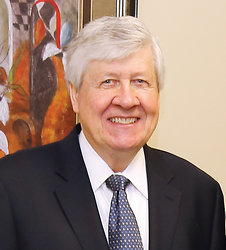We have written a lot about retirement because it's critically important for so many people. We have years of experience getting people prepared for retirement and beyond.
Here are nine things that people facing retirement need to know:
1. When you retire, your living expenses may not go down. In fact, the first few years after retiring, you may spend more because you have more time for leisure activities such as travel and hobbies.
2. Inflation is a very big problem for retirees. The cost of basic living expenses like housing, food, utilities, and clothing will go up over time, but your retirement income may not keep pace. Inflation will erode the purchasing power of your savings and pensions. Most people will live decades in retirement. Create a plan to offset the effects of inflation.
3. Try to determine how much of your basic living expenses are covered by Social Security and pension income. Fewer companies offer pensions today than ever before. This makes wise investment decisions more important than ever.

4. Decide when to apply for Social Security. The longer you delay, the higher your monthly payment. If, instead of claiming at age 62, you wait until 70, your payments may increase by more than 75 percent.
5. It's possible that both Social Security and pension benefits may face cutbacks in the future. Both are underfunded. These are serious concerns, especially for those who have many years before retirement.
6. Everyone is eligible for Medicare at age 65. Read the Medicare rules carefully. If you don't sign up during your initial enrollment window, you can face a 10 percent increase in Part B premiums for every year you don't enroll unless you qualify for an exception. The average 65-year-old couple needs $285,000 to fund health care retirement costs. That does not include long-term care expenses.
7. Be prepared for the possibility that your lifespan will be longer or shorter than the typical actuarial estimates. The median life expectancy for males is age 89 and for females is 91. Ten percent of males are still alive at age 98, 10 percent of females live to 100. Many elderly are concerned about outliving their savings.
8. Make wise investment decisions to fill the gap between your guaranteed income and what you plan to spend. Avoiding major losses. Most people need investment advice. Find an Investment Advisor who is a fiduciary, preferably an independent fee-only advisor who is also a CFP® (Certified Financial Planner™).
9. Have a plan because you are going to be retired for many years.
Check out our website to find out how a Korving & Co. Certified Financial Plannerâ„¢ professional can make your retirement plans a reality. https://korvingco.com/financial-planning/
Korving & Company
Arie Korving CFP® and Stephen Korving CFP®
Investment Management | Financial Planning
1510 Breezeport Way, Suite 800
757-638-5490
info@korvingco.com
757-638-5490
info@korvingco.com
www.korvingco.com

